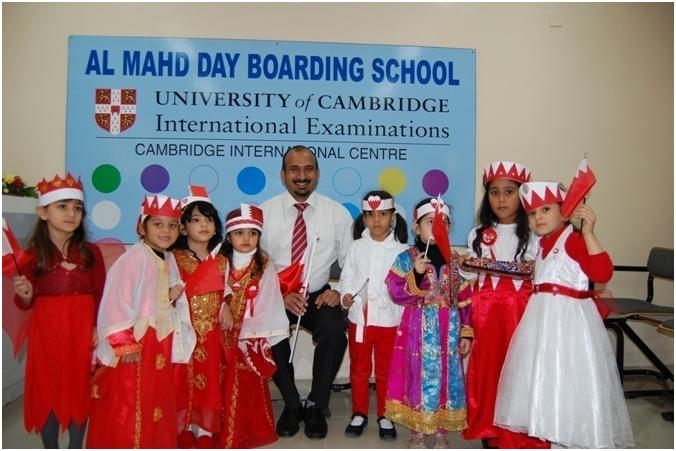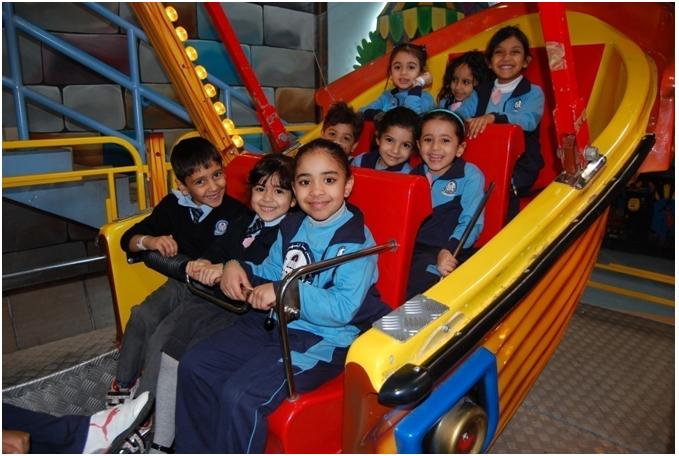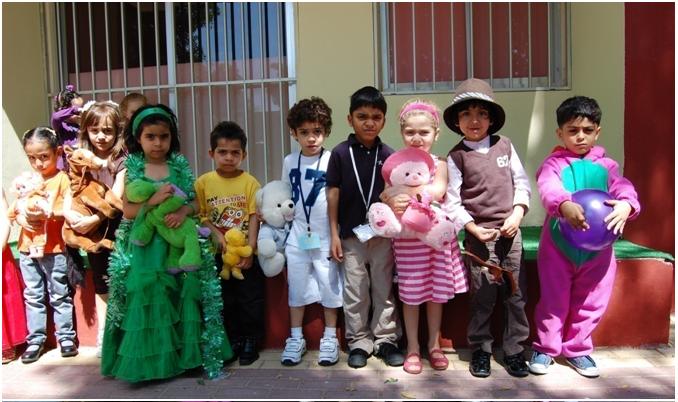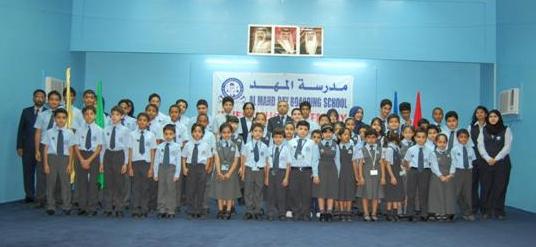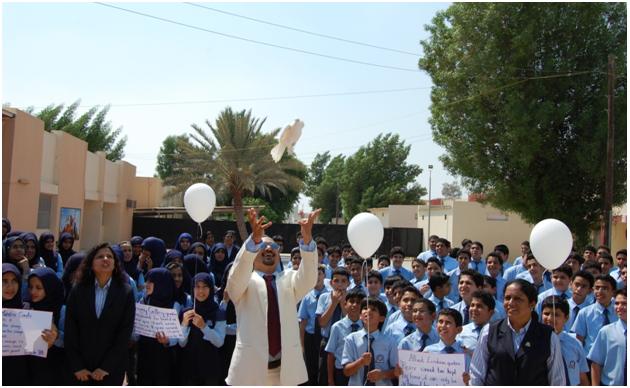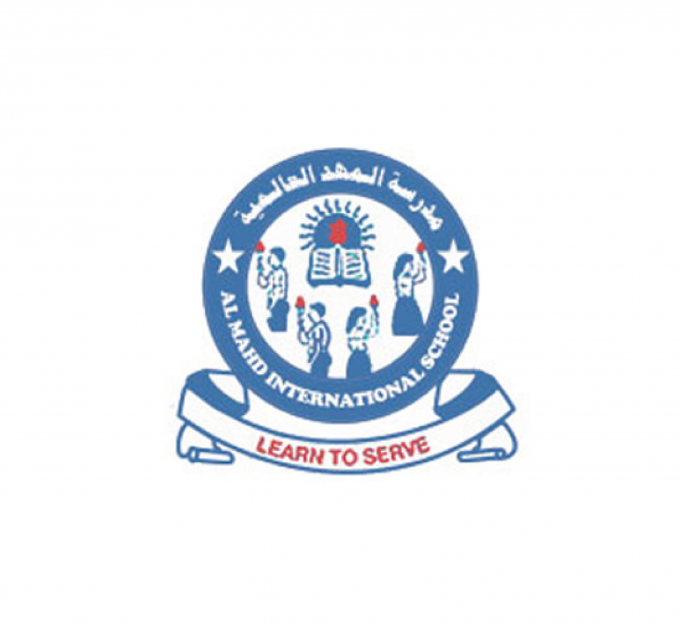
Al Mahd Day Boarding School
Operational Hours
Sunday : 7:00 AM To 2:30 PM || Monday : 7:00 AM To 2:30 PM || Tuesday : 7:00 AM To 2:30 PM || Wednesday : 7:00 AM To 2:30 PM || Thursday : 7:00 AM To 2:30 PM || Friday : Day Off || Saturday : Day OffDescription
AL Mahd Day Boarding School (AMDBS) began in October 1997 with 40 students and two villas. Today we have three full-fledged campuses in Saar, Samaheej and East Riffa and over 2500 students.
In 2004, the school was awarded International Center Status by Cambridge International Examinations (CIE), of Cambridge University, which is one of the world’s leading providers of educational qualifications and assessments. This status reflects the quality of teaching and the high standards of administration demonstrated throughout the school.
We believe that such quality education should be affordable. Therein lays the charm of Al Mahd. However, no introduction can provide a complete picture of our school, so please do visit us and see if we are the right school for your child.
The aim of education at Al Mahd is to promote a balanced development of our children through a well-structured curriculum and healthy environment.
We also believe that education is not just about acquiring knowledge but about all round development of the child. A complete education should enable a child:
- To distinguish between right and wrong.
- To think logically and take sound decisions.
- To have a reasonably wide general knowledge of the world.
- To express himself clearly, in speech or in writing, in more than one language.
- To develop habits those promote good health.
- To be a responsible citizen of the world.
Admission Procedure
Registration and admission for the academic year starting in September opens in April of each year.
The minimum permissible age for Kindergarten 1 is four on or before 1st September.
There is no placement assessment test but there is an interview for children enrolling in Kindergarten 1. For all other classes admission is granted on the basis of an entrance test in English, Arabic, Mathematics, and Science.
The school requires that on entry children should be able to communicate in English at a level appropriate to their age and development. If English is not a child’s first language it will be necessary for the school to assess the child’s ability in English.
Acceptance will depend on the result of the placement assessment test and existing vacancies
Application/Admittance Requirements:
- Completion of a School Application Form. The child's name must be the same as per the birth certificate or passport.
- Four recent passport size photographs.
- A copy of passport, with valid dates.
- A copy of the child’s birth certificate and CPR.
- Original transfer certificate or school leaving certificate from the previous school. (This must be attested by the Ministry of Education if transferred from a school outside Bahrain).
- Two copies of last school report and examination results or school recommendation letter.
- Copy of Medical certificate or Immunization Card for Kindergartens 1 and 2.
KINDERGARTEN
Kindergarten Section (K.G. 1 & K.G. 2) follows a well developed international curriculum, which is a development-oriented and an activity-based system. The environment and facilities are suitable for every child and makes learning a pleasure. Assessment is continuous and within the designated performance levels and attainment targets. The basic academic curriculum includes English, Mathematics, Environmental Studies, and Arabic along with computer games, music and other fun activities.
Within the kindergarten section, all children are supported in developing their potential at their own pace by means of appropriate play activities and a high level of adult input. We offer learning experiences leading to nationally approved learning outcomes and prepare children to progress to the British curriculum at the age of five.
COMMUNICATION, LANGUAGE AND LITERACY
In both small and large groups children are encouraged to extend their vocabulary and fluency by talking, listening and responding to stories, songs and rhymes. Children are helped to understand that written symbols carry meaning, to be aware of the purposes of writing and, when ready, to use drawn and written symbols for themselves. A well-stocked book corner gives every child the opportunity and encouragement to become familiar with books, able to handle them and aware of their uses, both for reference and as a source of stories and pictures.
PERSONAL, SOCIAL AND EMOTIONAL DEVELOPMENT
All children are individually supported in developing confidence, independence and self respect. They are encouraged to work and concentrate independently and also to take part in the life of the group, sharing and co-operating with other children and adults. Through activities, conversation and practical example, they learn acceptable ways to express their own feelings and to have respect for the feelings of others. All children are given the opportunity, as appropriate, to take responsibility for themselves and also for the group, its members and its property.
MATHEMATICAL DEVELOPMENT
By means of adult-supported practical experience, children become familiar with sorting, matching, ordering, sequencing and counting activities forming the basis for early mathematics. As they use their developing mathematical understanding to solve practical problems, children are assisted to learn and use the vocabulary of mathematics, identify objects by shape, position, size, volume and number. Songs, games and picture books help children become aware of number sequences and when they are ready, to use simple mathematical operations such as adding.
KNOWLEDGE AND UNDERSTANDING
A safe and stimulating environment allows children to explore and experiment with a range of natural and manufactured materials. They learn to observe the features of objects and substances, recognising the differences, patterns and similarities and to share and record their findings. Children are assisted in exploring and understanding their environment, both within the class and also in the wider community. A range of safe, well-maintained equipment enables children to extend their technological understanding, using simple tools and techniques as appropriate to achieve their intentions and to solve problems.
PHYSICAL DEVELOPMENT
A range of equipment and opportunities, both indoor and out, allows children to develop confidence and enjoyment in the use of their own bodily skills. A very high level of adult supervision enables children safely to create and meet physical challenges, thereby developing increasing skill and control in activities such as climbing and balancing. The children are supported in the development of their fine motor skills that are required to use tools, including pens, pencils, scissors and handling small objects, with increasing control and precision.
CREATIVE DEVELOPMENT
Children are encouraged to use a wide range of resources in order to express their own ideas and feelings and to construct their individual response to experience in two and three dimensions. Art equipment, including paint, glue, crayons and pencils as well as natural and discarded resources, provides for open-ended explorations of colour, shape and texture and the development of skills in painting, drawing and collage. Children join in with and respond to music and stories and there are many opportunities for imaginative role-play, both individually and as part of a group.
ROUTINE
Each room and group has its own daily routines, these will include:
- Free play, encouraging freedom of choice.
- Snack time, encouraging healthy eating.
- Toilet time, encouraging independence.
- Structured planned educational activities.
- Outdoor play, helping to develop physical and observational skills
JUNIOR SCHOOL
Grade 1 – 6 (Key Stage 1 and 2)
The Junior School follows a full day curriculum from 7:30 am to 2:30 p.m. In the morning session we have regular classes and the afternoon hours are utilized for extra classes that is homework, and learning extra-curricular activities under the supervision of expert teachers.
The school follows the Cambridge International Primary Programme (CIPP) which helps teachers develop Mathematics, English and Science skills and knowledge in the children. The Primary Programme provides guidance for curriculum development and classroom teaching and learning, and allows teachers to assess children's learning as they progress.
Major benefits of the Primary programme are:
- It develops a strong foundation for students as they progress into secondary education by identifying their strengths and weaknesses and supports their learning and development accordingly.
- It progresses students effortlessly into middle years curricula, such as Cambridge Checkpoint (Key Stage 3) and IGCSE (Key Stage 4).
- It allows teachers with an external benchmark to easily measure the students’ progress over time and also allows detailed, structured reporting to parents.
- The programme has been designed to be culturally sensitive, and students are provided with top-quality teaching and assessment resources that are used in local schools in the UK and internationally.
Our main aim at Al Mahd is to make learning focused, flexible and fun while providing our students with internationally renowned qualifications and assessments well recognized in the global arena.
JUNIOR SCHOOL SYLLABUS
English Framework
Science Framework
Maths Framework
MIDDLE SCHOOL
GRADE 7 – 8 (Key Stage 3)
The Middle School follows the Cambridge Lower Secondary Programme, which builds on the primary stage, and develops children’s knowledge and skills in Mathematics, English and Science. The Cambridge Lower Secondary Programme offers schools a means of tracking student progress through the lower secondary phase, as at the end of lower secondary, students can sit the Cambridge Checkpoint tests which provide detailed feedback on students’ strengths and weaknesses before they move into the IGCSE stage.
The Lower Secondary Programme has been developed to link seamlessly with the Cambridge International Primary Programme and it also provides excellent preparation for students embarking on IGCSE courses.
The idea behind the Cambridge Checkpoint service is to provide teachers access to standardized tests that provide feedback on a student's strengths and weaknesses in key curriculum areas. The advantage of such a system is that teachers can then pay more attention to the child and tailor an individual study programme for the student according to his/ her needs. They can also report to parents by providing them detailed information on the progress of their child and also help in the prediction of the students’ formal examinations.
The school introduces special values and traditions of a ‘day boarding’ school along with teaching concepts and skills within an international style of education that will benefit students of all nationalities in this international setting.
The learning process, which is child-centred, teaches students to think for themselves and encourages initiative, innovation and participation. Assessment is on-going and within the designated Performance Levels and Attainment Targets established by University of Cambridge International Examinations. Progress is monitored carefully through examinations.
MIDDLE SCHOOL SYLLABUS
English
Maths
Science
SENIOR SCHOOL
GRADE 9-10 (Key Stage 4)
At the moment, the Senior School prepares students aged 14-16 for their International General certificate of Secondary Examination (IGCSE) which is a wider curriculum specifically tailored to international needs, with an assessment system appropriate for students of all abilities. It is designed as a one-year curriculum programme leading to a certificate, which is internationally recognized as equivalent in standard to the British GCSE and the International GCE O-Level examinations.
The aims of IGCSE are:
- To support modern Curriculum development
- To promote international understanding
- To encourage good teaching practice
- To set widely recognized standard
IGCSE provides a foundation for higher-level courses such as the North American Advanced Placement Test (APT), the International Baccalaureate (IB), and GCE A-levels and the Advanced International Certificate of Education (AICE).
IGCSE seeks to take candidates’ differing abilities into account and therefore offers a choice between Core and Extended Curriculum papers in subjects where it is appropriate. The Core Curriculum is based on an overview of the subject and is aimed at students expected to achieve grades C to G. The Extended Curriculum is designed for the ones more academically able, who are expected to achieve grades A* to C.
OPPORTUNITY & OBLIGATION
We are committed to encouraging positive educational experiences and providing a relevant, accurate and reliable programme. Our programme equips the students for employment and further education. It is suitable for students of any nationality and cultural background and is designed to meet the needs of learners who are not native English speakers.
Entry to IGCSE is by individual subject, and International Certificate of Education (ICE) is the group examination of IGCSE. All students for ICE must enter and sit for at least seven subjects. Students who fail to gain the ICE will qualify for the award of the IGCSE grade in the subjects taken.
We have tried to offer as many choices as possible to best suit the needs and aspirations of each student. However, it may well be that there is no arrangement of the options selection which will suit every student, and so, in a very small number of cases, first choice may have to be revised. We hope that this may not happen, but the possibility exists. Not all subjects make the same demands on a student’s time. This should be borne in mind when choices are made. The amount of time required for each course will be fully explained to the pupil by subject teachers, but we expect 90 minutes homework per subject per week.
INTRODUCTION FOR PARENTS
Secondary school can feel as different for the parents as it does for their children. The buildings are bigger, the work is different and demanding and there are many more teachers to know. And that’s not to mention how difficult teenagers can be when you ask them what they’re studying or whether they have done their homework. As a parent or carer, you have a very important role to play in helping your child choose the right combination of subjects. Some parents are afraid of doing the wrong thing. If you are unsure about how to help, you can always ask your child’s teachers. Your support and encouragement are very important for your child’s progress.
Both parents and Grade 10 students should keep the following in mind when choosing the IGCSE examination subjects:
- The choice should be a guided one involving students, parents and teachers. We have created opportunities for all the members of this partnership to help in making the right decision for the individual student.
- The widest possible choice should be made. The more different things the child has done, the more confident s/he will be. So unless your child wants a career that requires particular IGCSEs or A-Levels, their best path is to study as broad a range of subjects as possible – subjects that they enjoy.
Our school’s options policies are designed to encourage this, by ensuring every student studies a good range of subjects. Very occasionally, a 13-year-old knows what s/he wants to do as an adult. Rejection of a subject without adequate consideration may have far reaching and damaging consequences. It is important to ensure a broad choice. We are delighted to be able to offer a wide range of subjects at IGCSE level.
INTRODUCTION FOR STUDENTS
When you were in Key Stage 3 (aged 11-14) most of what you studied was set by the school, but in Key Stage 4 (aged 14-16) two things will change.
- You study subjects in more depth. This means you must choose some and stop studying others.
- You will work towards qualifications at 16.
So you have choices to make. You will need to think about options doe the next two years of study. To help you in this regard we provide students with information that explains the subjects that they have to study and the kind of qualification they can aim for. The subjects you choose now are important as a foundation for further learning – lifelong learning.
Some of the things to think about:
- What do I enjoy studying?
- What are my strengths?
- If I choose the option now, will it keep more options open later for further study, training work?
Some things for you to consider:
- Don’t choose a subject because you are really motivated by a belief that it won’t involve much work. Remember you will have to work hard in all subjects to get a good qualification.
- Don’t choose a subject to stay in the same class as friends but because timetabling everyone’s need is complex; you might well be split from your friend for a particular subject.
- Don’t choose a subject just because you like a teacher. You should be confident that you will enjoy the subject no matter who teaches it. Again timetabling and the possibility of staff changes can place you with a different teacher.
Do not worry if you have no idea what you want to do. You will be helped to make sensible course choices, which leave your options open. It is an exciting time and all your teachers wish you well. Remember though, hard work is very important if you are to fulfil your potential and realise your career goal.
A BALANCED CURRICULUM
Foundations for buildings need to be broad and strong so that they can support what is built on top of them. Study at 14-16 is the same – most students do better studying a broad range of subjects. Later they can build on this broad foundation by specializing.
IGCSE provides a broad study programs by drawing subjects from five areas.
GROUP I - Languages
GROUP II - Humanities and Social Sciences
GROUP III - Sciences
GROUP IV - Mathematics
GROUP V - Creative, Technical and Vocational
If a student passes seven IGCSE examinations (2 from the language group, 1 from each of the other four groups and 1 more from any group) then they will qualify for an International Certificate of Education (ICE) Diploma.
The diploma is awarded at one of the three levels – Distinction, Merit or Pass depending upon the grades earned in the seven examinations. Five passes at grade C or higher would indicate a student’s readiness to begin higher-level pre-university programmes such as A or AS levels.
In addition to IGCSE subjects, all students should expect to follow non-exam courses in Physical Education, Religious Education and Citizenship.
UNIFORM GIRLS
Summer Wear
K.G. to Grade 6
Grey pinafore, light blue shirt (short sleeves in summer and full sleeves in winter), grey socks, black shoes, and school tie.
Grade 7 to 11
Grey skirt, light blue shirt (short sleeves in summer and full sleeves in winter), grey socks, black shoes, and school tie.
Winter Wear
K.G. to Grade 11
Add navy blue V-neck full/ half-sleeved cardigan/ blazer with school logo.
Footwear
Plain black leather shoes.
Sports Wear
K.G. – XI
Navy blue slacks and jacket with light blue round neck T-shirt with school logo.
Footwear
Plan white sports shoe
UNIFORM BOYS
Summer Wear
K.G. to Grade 4
Grey shorts, light blue shirt (short sleeves in summer and full sleeves in winter), grey socks, black shoes with laces, school tie and black belt.
Grade 5 onward
Grey trousers, light blue shirt (short sleeves in summer and full sleeves in winter), grey socks, black shoes with laces, school tie and black belt.
Winter Wear
K.G. to Grade 11
Add navy blue V-neck full/ half-sleeved cardigan/ blazer with school logo.
Footwear
Plain black leather shoes.
Sports Wear
K.G. – XI
Navy blue slacks and jacket with light blue round neck T-shirt with school logo.
Footwear
Plan white sports shoes
TRANSPORT
Transportation of children is not an obligatory service for the school, but it is arranged for the convenience of the parents. The school authorities are not responsible for any delay, accident or breakdown of the transport.
The following transport service regulations are hereby framed to make school transport service regular, punctual, safe and convenient.
- Buses will be available only on routes and at the stops fixed by the schools. However, the school reserves the right to make any changes if found inevitable.
- Eating and drinking in the bus is strictly forbidden.
- No student will be allowed to board a different bus other than the one allotted.
- In case of misbehaviour in the bus, the driver is authorized to give the name of the student to the school office.
- Bus facility will be cancelled for those who damage any bus fittings or indulge in act of misbehaviour.
- Children proceeding on leave will also have to pay the bus fee along with the tuition fee for the period of leave.
- No parent shall insist on the bus waiting until his/her child gets ready. The child should be ready to board the bus five minutes before the prescribed time. No second trip shall be made, if a child misses the bus. The parent has to bring the child to school by 7:30 a.m.
- If any parent decides not to use the school transport and wish to pick their child back from school in their own transport before the end of the school hours, they shall inform the school at least a day in advance and in special cases not later than 11 a.m. on that day. No sudden request of collection of a child shall be entertained. Parents are to desist from making sudden pick-ups as a habit as it disrupts the school’s transport arrangements.
- If any parents face inconvenience with the school transport service they are supposed to contact the school office. Under no circumstances, parents shall give orders to on duty staff, drivers or teachers-escorts as regard to bus-seating arrangement or other changes.
- Children have to board the buses immediately after the last class.
- In order to avoid any chaos and confusion at the bus parking ground the following must be strictly adhered to:
- Bus numbers are written on the Parking Ground and the buses are parked accordingly.
- After reaching the parking ground, students should go to the specific point where the buses are parked and board them immediately.
- They should not loiter around and enter any other bus.
- Once they board their buses, they should not come out leaving their bags for any reason whatsoever.
- They are expected to cooperate with the traffic volunteers (students/staff) who are posted at various positions
- For any changes in the already arranged transport facilities, at least 7 days advance notice is required. However, it is not obligatory for the school to incorporate such changes; should they be too difficult. Readjustments will, as far as possible, be made keeping the feasibility of such readjustments in mind. If the changes are not incorporated, the school is not bound to refund the transport fee.
- Parents are requested to inform the school in writing one month in advance if they wish to discontinue using the school-transport service. If the parents fail to inform the school in time, they will be liable to pay the school transport fee in full.
- The school reserves the right to make any changes in the bus routes, stops and timings.
- The school reserves the right to terminate, without assigning any reason, the transport services to the child of the parent who disregards these regulations.

Please Login to add your review.



